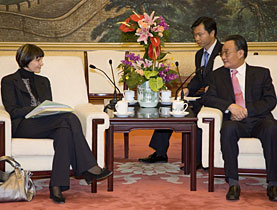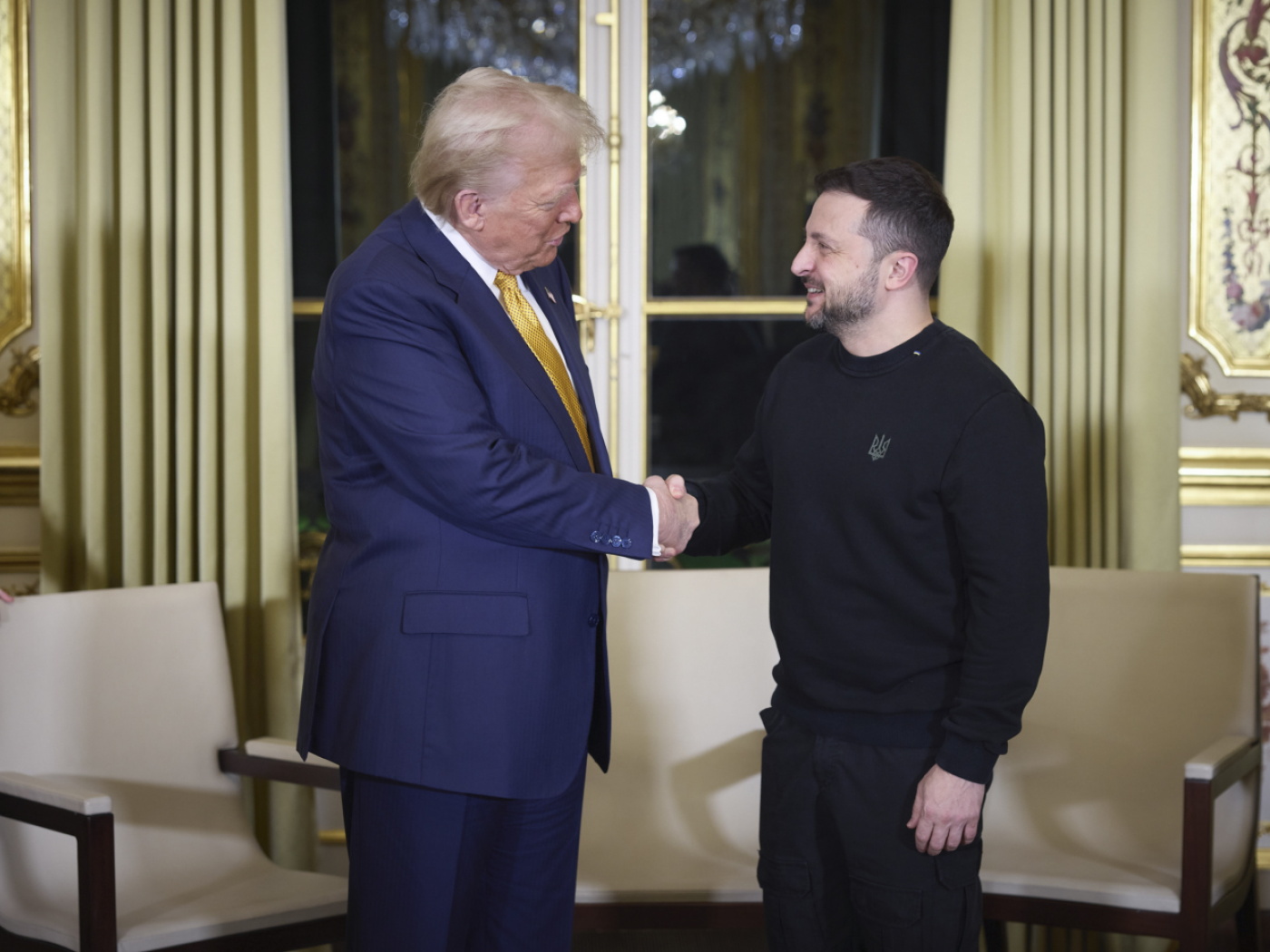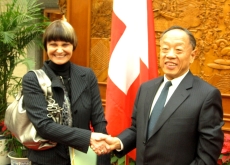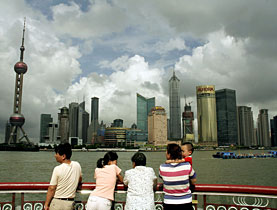Chinese hold Swiss in high esteem

During the Cold War, Switzerland was a window to the world for China, and it still holds a high opinion of the Alpine country, according to a Swiss sinologist.
Harro von Senger also says a lot of Western opinions of China are based on ignorance. He is the author of the best-selling The 36 Stratagems for Business, a set of Chinese aphorisms embodying the essence of the ancient Chinese art of cunning.
China’s 1.3 billion inhabitants make up by far the world’s largest nation. A margin of error of just one per cent corresponds to 13 million people – almost double Switzerland’s entire population.
Yet these two seemingly different countries share more than one would think – Switzerland was after all one of the first countries to recognise the People’s Republic of China under Mao.
“That was not a politically well-thought-out decision,” von Senger told swissinfo. “For the Swiss cabinet at the time, technocratic reasons swung the balance. They didn’t want to give up their diplomatic representation on the Chinese mainland, but standing by Chiang Kai-shek would have meant moving to Taiwan.”
Chiang Kai-shek led the Chinese Nationalist Party, which ruled much of China from 1928 until its retreat to Taiwan in 1949 after defeat by Mao’s Communist Party during the Chinese Civil War.
“Switzerland was very valuable for Beijing because it was one of the very few European countries with Chinese diplomatic representation,” von Senger said, a window to the world that was especially important for China during the Cold War.
Switzerland also gained plenty of goodwill through its policy of neutrality.
“As a small country, Switzerland didn’t raise any suspicions among the Chinese of pursuing any hidden agendas.”
Thanks to its reliable “values” of neutrality and independence, Switzerland also found itself in a good position when Communist leader Deng Xiaoping initiated economic reforms and liberalisation in 1979. With the economy now playing a central role for China, Switzerland scores points with the export of goods and technical know-how.
Human rights
Switzerland also played a pioneering role in discussing human rights with China, with dialogue beginning in 1991.
Although other countries, for example Germany and Denmark, have broached the issue with Beijing, von Senger said these countries have less legitimacy than Switzerland.
“When it comes to dealing with minorities, the Swiss talk to the Chinese confidently and as equals.”
However, von Senger believes expectations in Switzerland are harmed by misunderstandings and ignorance.
“Our perception of the human rights situation in China is based on a lack of information on China’s position in the global human rights debate.”
He says that while Switzerland – and the rest of the West – thinks of freedom of expression, a free media, political prisoners and Tibet, for the Chinese other human rights are to the fore, for example the right to development.
“In 1986, 146 United Nations countries agreed with this – against a no from the United States and eight abstentions from European countries,” he said.
“When China talks about improving human rights in connection with the Olympic Games, this is what it has in mind, because the new buildings and infrastructure will result in development. This is not a particularly typical Chinese point of view – it’s that of the UN.”
China in control
Von Senger says that hardly anyone in Switzerland has ever taken any notice of the UN Human Rights Council or its discredited predecessor, the Commission on Human Rights.
“The Swiss press boycott events right under their nose – the UN human rights body has always had its headquarters in Geneva,” he said, adding that this gives the public the impression that human rights in China are not an issue.
Von Senger carefully monitors the Human Rights Council sessions and draws a different conclusion.
“China calls the shots at the Human Rights Council – in crucial votes on controversial resolutions it usually finds itself in the majority, along with the southern countries,” he said.
Von Senger is not saying that advocacy for political prisoners would not be opportune. But were any inmates to be released as a result of the Swiss giving the Chinese a list of political prisoners, it would be more a goodwill gesture on the part of Beijing.
swissinfo, based on an article in German by Renat Künzi
1918: first treaty of friendship.
1950: Switzerland is one of the first countries to recognise the People’s Republic of China.
1954: Prime Minister Zhou Enlai becomes the first Chinese leader to visit Switzerland.
1974: first commercial agreement.
1980: joint venture between the Swiss lift manufacturer Schindler and a Chinese firm.
1986: agreement affording mutual protection for investments.
1989: scientific and technical cooperation agreement.
1992: patent protection agreement.
1996: first visit to China by a president of the Swiss Confederation (Jean-Pascal Delamuraz).
1999: Bilateral relations are temporarily tarnished after the visiting President Jiang Zemin is booed by exiled Tibetans in Bern.
2002: Opening of the Swiss Business Hub in Shanghai
2004: protocol of understanding on tourism.
2007: joint declaration on the protection of intellectual property.
Harro von Senger is a professor of sinology at Freiburg University in Germany and an expert on Chinese law at the Swiss Institute of Comparative Law in Lausanne.
He devoted several decades to the research of Chinese ancient military strategy and in 1992 published the first volume of his best seller, The 36 Stratagems for Business, in German. It has since been translated into 12 languages. In 2000 the second volume came out.
Born into an intellectual family in Geneva in 1944, Harro von Senger saw Chinese characters for the first time at a family friend’s home in 1963. The same year he was admitted to the Department of Law of Zurich University and later chose the Chinese language as his minor. Although he passed the bar exam in 1971, he left Switzerland for Asia and studied Chinese in Japan, the Chinese mainland and Taiwan.

In compliance with the JTI standards
More: SWI swissinfo.ch certified by the Journalism Trust Initiative











You can find an overview of ongoing debates with our journalists here . Please join us!
If you want to start a conversation about a topic raised in this article or want to report factual errors, email us at english@swissinfo.ch.